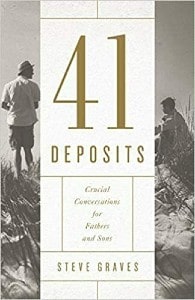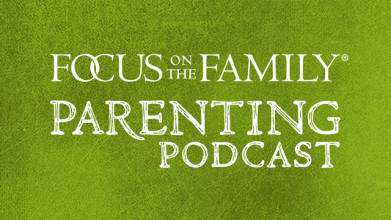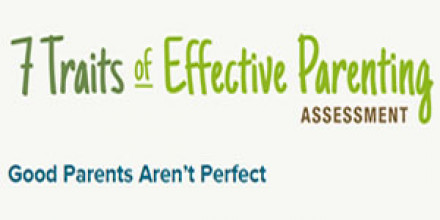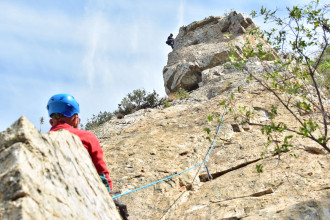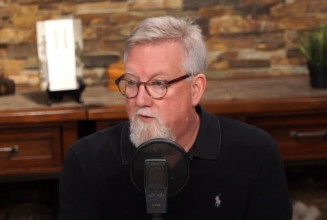Preview:
Steve Graves: He literally grabbed me and he hugged me and it was probably one of the greatest, I mean, it was one of the best 60 seconds of my 65-year-old life.
End of Preview
John Fuller: Well, that’s Steve Graves sharing about the important role of a dad in his child’s life and Steve is with us today on Focus on the Family. Your host is Focus President and author, Jim Daly. I’m John Fuller and we’re gonna hear some great advice from Steve about how to intentionally invest in your son and really equip him for adulthood.
Jim Daly: You know, John, I haven’t met anyone who really regrets spending that intentional time with their children. I mean, that’s a healthy parent, right? You want to spend that kind of time with your kids, but I know many parents who wish they had been more intentional-
John: Hm.
Jim: … about spending that time. I think of that with my boys. One of the things I didn’t do well, now in retrospect, I mean, Trent’s out of the home, Troy just graduated, you know, so, uh, but spending individual time with them. I- I, because I had two boys, we just did everything together as guys, right, whatever we did. And I think that was a shortcoming. I should’ve spent a little more time with each one of them individually.
John: Mm-hmm.
Jim: And uh, today we’re gonna talk about how to do that balance, how to work as a good father to develop that relationship and deposit into their souls, the things, particular your sons, but this will apply to daughters as well, but what your sons need from a dad.
John: Mm-hmm. Yeah, there’s some great principles for every dad, so lean in and hear from Steve. Uh, he and his wife, Karen, have three adult children and uh, he works in the corporate world advising business owners and entrepreneurs and Steve speaks and writes about faith and work, and has a book called, 41 Deposits, Crucial Conversations for Fathers and Sons, and you can get your copy at focusonthefamily.com/broadcast or call 800, the letter A, and the word FAMILY.
Jim: Steve, welcome to Focus on the Family.
Steve: Hey, thanks, Jim, John. Good to be here.
Jim: It’s good to have you. I love this topic, being a father of two boys. I mean, whenever we’re talking about being a dad of sons, it excites me.
Steve: Yeah.
Jim: And like I said, I think these applications will work for daughters as well. Uh, there’s some differences, but generally, what we’re gonna talk about today is how to be a good dad, right?
Steve: Yes, absolutely, and they do apply to women as well.
Jim: Um, you have three children. You have two daughters and a son, and I think they’re grown now, right?
Steve: Yeah, they are. They’re all, they’re actually, we went, it’s really funny. We went from having no married children to all married children in two years.
Jim: (laughs)
Steve: We’ve had three weddings. You know, everybody got married and then, we just had our first grandchild not too long ago. So we’ve- we’ve moved fully into the parenting of adult children quickly.
Jim: That sounds like warp speed actually, so…
Steve: It is. It is.
Jim: (laughs)
Steve: We need help. We need help.
Jim: Yeah, so you’ve experienced it all rather quickly.
Steve: Yes, we have.
Jim: So, um, you know, being that kind of dad, that intentional dad, what was raising your kids like? What, how would you describe yourself in that regard?
Steve: Well, you know, it’s really interesting. Uh, you know, I’m an intentional person by nature. My job is working with CEOs, I advise CEOs, is what I do every day, and so I have to be a little proactive and out thinking ahead and around the corners, so by nature, my wiring is intentional, but uh, you know when you- you know when you’re parenting kids, you just kind of get in that zone. You’re just doing everything you can do to keep things moving and keep it going, and you get to Sunday, and then you start again on Monday. And you wake up and all of a sudden, people are in junior high and then they’re graduating and you just say, “Wow. What really happened?” And- and so, it was really interesting. My girls, I was clearly intentional with them, but my son somehow really triggered some things in me that made me want to make at least even a greater series of intentional deposits into his life, kind of from a dad to a son kind of a thing, and- and I try to apply it to my family when I can.
Jim: Let me, you know, let me make sure dads are hearing this clearly, and- and the- the wives that love them.
Steve: (laughs) Yeah, yeah.
Jim: I- I wrote a book called, The Good Dad, because one of my concerns is that we as- as men, tend to wanna do a good job and if we’re not doing a good job, we kind of recoil. We go and hide. And I think fathering has so many challenges that we’re not equipped for. You may be a person that came from a household like me, that you didn’t have a dad.
Steve: Right.
Jim: I mean, I was lost. I didn’t have a blueprint. Nobody taught me how to be a dad, and you can have a father live in a home, an intact home, and have that same outcome.
Steve: Mm-hmm.
Jim: Where you didn’t really have modeling on how to be a father because your dad was emotionally distant or what have you. So, I want- I wanted to ask you that question. In terms of that perfection drive that many men have and the fact that, no one’s perfect. It’s okay. You’re not, you don’t need to be working with CEOs. I mean, a lot of men that just heard you went, “Whoa, okay, this guy’s qualified.” (laughs)
Steve: Yeah, yeah. Well, yeah, I hope I at least have something to say to them after 35 years. You know-
Jim: But that’s the point-
Steve: Yeah.
Jim: The perfect versus the good.
Steve: Yeah, no. I- I couldn’t agree more. I mean, if I would’ve had to have been the perfect dad, I, you know, I mean, I’m not. And that was, to be honest, Jim, that was really my biggest challenge in really putting this into a book. I did it because I wanted to impact my son and it was a great journey for the two of us. It was an awesome experience for the two of us to bond as him becoming an adult, um, and I had the outlines. I’d done it but I’m, and I’d send my outlines to anybody who wanted them, but I just wasn’t really sure I wanted to put it into a book because I’m not the perfect dad, he’s not the perfect son, we’re not the perfect family. We didn’t do the perfect job, and this notion that- that I’m putting out some prescription, that if you’ll just, you know, take these 41 pills, everything’s gonna be perfect. To be frank with you, I had 50. I had 50 deposits. We only got to 41, so I’m like a nine, I’m a nine-deposit failure, if you really wanna get down to it.
Jim: (laughs) It’s an A minus.
Steve: Exactly. Exactly. Give me a solid B plus or A minus.
John: (laughs)
Steve: But yes, I am not, you know, it was not the perfect dad, but it’s the dad who says, “You know what? During the season when my children are with me, I’m gonna make sure that I at least devote the kind of stewardship to them that needs to be there,” and here’s the thing, I don’t know… Most parents that I’ve, that I know and I’ve met, you know, I’m 65, and so I met a lot of parents in- in a lot of places, and most parents aspire great things for their children. They really do, and that’s believing parents, faith-based parents, it doesn’t matter what political party. Most parents aspire great things for their kids. It’s just knowing kinda, what to do.
Jim: Yeah.
Steve: And how to get that done. That’s where we sometimes go a little foggy.
Jim: Well, let’s get into it. The title is catchy, 41 Deposits, so how do you define a deposit. What is that?
Steve: Well, let me tell you what it meant for me and I would not at all try to tell everybody that, you know, this is what it’s gotta mean to you, but for me, I knew this. I knew that I grew up without a dad in my home. I had a Godly mom, and then I had, uh, I had at least nine very specific men that played a father figure in my role, as I was growing up, in- into becoming an adult, and those men deposited certain things into my thinking, my psyche, my mindset, my belief system, whatever. And so, I just sat down one time and made a long list of things that I knew, at the end of the day, if I could share with my son, what I thought about these things, how I was approaching them, how I was, you know, reaching the challenge of each of these things, and then help him think about them, over kind of, a really transparent, honest, vulnerable relationship, that was for me the deposit. The deposit wasn’t that I’m going to force feed into him to believe a certain way, to think a certain way, you know, by the way, you need to believe exactly how I do about these 49 things, or 50 things, 41, you know what-
Jim: (laughs)
Steve: And- and- and it, be- be- because he’s a different person.
Jim: Right.
Steve: And God has a different calling for him. Now, when it comes to the core values of life and the belief systems and some of that, I- I hope that as he migrates into adulthood and he finds his adult faith and on and on, that I hope that we’re more aligned than we’re not aligned-
Jim: Sure.
Steve: … but a deposit wasn’t, I’m just gonna- I’m just gonna kinda, like a mold, I’m just gonna stamp these into you, and you have no, you don’t really have any varying to really trust and believe them, accept them or not.
Jim: You- you added in there, which I think is important, kinda the tying a knot analogy. It’s not just the deposit, but you’re actually strengthening the fiber of your son’s heart-
Steve: Mm-hmm.
Jim: … by tying this knot.
Steve: Yeah, yeah.
Jim: What were you getting at there?
Steve: Well, my two- my two big goals is I wanted to make some wisdom deposits into his mind, the way he thought about things, and then I wanted to try to make some relational deposits into his heart, so that he and I would- would really have a- a life connection, you know?
Jim: Mm-hmm.
Steve: And so, what happened is, that made me think about, I have to contextually get inside my kids’ lives as they go through inflection moments-
Jim: Yeah.
Steve: … in their lives, whether it’s puberty, whether it’s learning, having a date, whether it’s being a star on a basketball team, whatever. So, fast forward that, you know, with Kyle, um, I remember, I really wanted to somehow make sure that I had tied a good, tight knot between the way he was thinking, the way I was thinking and what he was feeling in his heart, and what I was feeling, and I really believed, it’s kinda that- that last verse in Malakai. It’s interesting, it’s set in a prophetic context. Uh, it’s not initially set in a family building context, but the context is, is that when parents tie their hearts to their kids and their kids are also tied to the hearts of their parents, there’s this two-way tie that’s going on, good things happen.
Jim: Yeah.
Steve: And that was for me, this realization all the way back to when my kids were younger, I realized that the notion that I’m just gonna wrap a really nice, tight knot with my children when they’re young, and that’s gonna ride for 50 years, is crazy. And it’s, I don’t need to feel guilty about that and I don’t need to be shamed. It’s, the knot’s gonna fray, it’s gonna come undone. It’s my job to go tie it again and tie it again and tie it again, and make sure, because if I’ve got that, I’ve got a pretty good sound framework-
Jim: Yeah.
Steve: … to work through all kinds of issues, whether they’re belief issues, they’re behavior issues, figuring out how to align adult families, whatever. So that’s- that’s where the knot comes from-
Jim: No, and- and it’s good. I- I’m thinking, you know, we use different terminology, but what you’re saying, uh, from another angle is just, “Be intentional about developing relationship with your kids.” That’s the point.
Steve: Yes.
Jim: And then, cement those values in various ways. Um, you know, a lot of men, we’re about process and structure, so when you look at it, we’re going, okay, what did you do, Steve? What’s the next step? What’s step one, two, and three? So when you look at the structure of what you decided to do with Kyle, after you identified the 50 things, even though you only got to 41, but we won’t talk about that.
Steve: Yes.
Jim: (laughs) but what was the structure for you and Kyle, and what age did you start?
Steve: Yeah, yeah.
Jim: And- and I think in there, I would ask you to include, this idea, the differential between lecturing and communicating.
Steve: Yep.
Jim: Relationship building, because I think a lot of us dads tend to wah-wah-wah.
Steve: Yeah.
Jim: We lecture.
Steve: Look, listen man, I get paid really good money to be a coach. To tell, give my point of view on something that should be happening. I mean, that’s what I, it’s how I’m wired. That’s my skillset. That’s my God-given calling. And so often, I kinda have to shift in- into a different mode where I’m not lecturing or I’m not coaching or I’m not telling them a point of view. I’m- I’m creating a conversation with him. The context was this, um, I made my list, and then Kyle and I agreed that we were gonna grab breakfast at a new donut, a new- a new bagel store in town.
Jim: Oh shoot. You had me at donut.
Steve: (laughs) Yeah. I know, I know. It was a brand-new bagel store and so, we, he wanted to go, so we- we joined up and um, excuse me, we decided that we would- we would go there and you know, it wasn’t the deal. Guys, it wasn’t the thing that we said, every Friday we’re gonna get together or every, but we decided we were gonna get together every week when we could. He was going into his high school season of basketball. He played basketball. He was really active, and we loved it, and uh, but we met every week or every other week, all the way through his high school season, and we worked our way through these topics, and some of those topics are what I would call a one bagel- a one bagel topic. Other topics would be what I would call maybe a 12-bagel topic. It just took us a while, and what we didn’t do is my intention wasn’t to simply come in, lay down my- my lecture notes. You know, I wasn’t some professor where I’m just gonna let him, here’s everything you need to know about this, what’s the next question? Okay, here’s everything you need to know about that, what’s your next question? And by, and you know, the quicker we can get through the syllabus, the quicker we can go do something meaningful. That was not our plan. Our plan was to create some honest, transparent dialogue around the topics that I felt like, were the most important topics that were in my heart, that I wanted to somehow transfer and put in his heart and his mind, and so we just wrestled and we talked about them. And what we usually did is, we started with kind of top-of-mind items, and then from that, we would try to slide into the topic of the day. Um, I would always try to have a story or whatever, and a Bible verse that we really anchored everything around, but we just stayed with it, all the way ’til he graduated, and then when he graduated, I gave him the notes.
John: I- I’m resonating with you, Steve, because I did something with my kids. We called it bagel and bible, and so often it wasn’t the discussion over the bagel, it was, um, it was the time to and from the bagel shop where we just kind of, unpacked life, sitting side by side. Our guest today on Focus on the Family is Steve Graves, and uh, we’re talking about some of the key concepts in his book, 41 Deposits, Crucial Conversations for Fathers and Sons. We’ll encourage you to get a copy from us here. Our website is focusonthefamily.com/broadcast or call 800, the letter A, and the word FAMILY.
Jim: Uh, Steve, there was a particular time that- that you shared about in the book where you and Kyle had a- a discussion, it may have been around sexual issues or lust or whatever that was, but I want you to fill the blank in there, but it really affected him and I- I think, I want to make sure we cover this because it- it’s the proof of the power of conversation. What happened?
Steve: Well, yeah, you know, it was really fun because it was fun and also painful. Um, I came in and I shared with him some of the ways that I struggle and some of the ways that I have failed around this big topic, and so, he just listened. And it just so happened that, that particular day, he had to leave early, and we both had forgotten about it, but he had to leave early, and so literally, at the, like almost at the very middle of our conversation, he had to bolt. Well, when he bolted, we’d already paid and so, we walked outside, and when we walked out, he literally grabbed me and he hugged, and it was probably one of the greatest, I mean, it was one of the best 60 seconds of my 65-year-old life. I’m telling you, it was, we hugged each other, uh, he started crying. I started crying, and not a word was said.
Jim: Mm-hmm.
Steve: And what was happening, and I confirmed later, but what was happening was, he was just thinking about areas that he has failed, and areas that he’s really human, and areas that he struggles in, but more importantly, or equally important, is he was looking at me as dad, and he was saying, “You know, here’s my dad who also struggles, who also fails, who also is a human,” and so, we were just kinda hugging each other-
Jim: Yeah, it’s good.
Steve: And just kinda holding each other and processing the fact that, we as men, are gonna struggle with that, by the way, our whole life. I mean, that’s not like, one of those that you kinda grow out of when you’re 31.
Jim: Right.
Steve: You know, or when you, as soon as you get married and have kids, no problem with- with any sort of sexual issues or temptations or struggles. That doesn’t go away.
Jim: Hm.
Steve: That go, and I don’t, it doesn’t matter how Godly you might be or how- how many versus you memorize. All those things are crucial, but the temptation itself is gonna be with us as long as we’re humans. And so, that was the moment for us that was- was a really strong one.
Jim: Well, I think the power of that is the- the level of intimacy and authenticity in that, when you can have that kind of discussion with your son and he can respond with that understanding. You’ve connected in a, such a deep way. That knot-
Steve: Yup, yup.
Jim: … that you referred to earlier is- is a double knot.
Steve: Yup.
Jim: And really tied tight.
Steve: It’s right.
Jim: And my guess would be, that he is comfortable coming to you talking to you about these things.
Steve: Yeah.
Jim: And that’s one of the big areas a lot of- a lot of dads will miss because we tell our sons, you know, this is what you do, this is what you don’t do. We don’t tell them our own failures, our own weaknesses, et cetera, where they can then attach to that, and then you have intimacy.
Steve: Yeah, we certainly are able to talk about all kinds of things, um, and we do. We do today. I mean, we talk about all kinds of things, and- and-
Jim: Yeah. I would say that, that was probably established in those early relationships.
Steve: No question.
Jim: Uh, let me move us along because there are a couple other things I wanted to cover obviously. Y- y- you had a deposit, if I can use your own terminology, about the importance of faithfulness in day-to-day life. That’s really good. What did you say, basically? (laughs)
Steve: Well, you know, that one, you know, the whole concept of learning how to be, learning how to bring the Gospel, the intent, the power, the reach of the Gospel into everyday living, into ordinary life. That’s a little bit more, um, challenging often, than we think it is. Sometimes our theology allows that conversation to be a simple, shallow, thin, uh, truth, but my theology says that, the concept of the Gospel is something that literally is the power, intent, and reach of the Gospel is supposed to shape the details of everyday life in a magnificent way. Understanding how that happens and transferring that and translating that into a teenager can be a little challenging and it can be challenging for an adult. And so, we- we worked on that and we worked on the whole idea of what it meant to actually work in one location versus another, what it meant for God to be active in your life, if you’re a basketball coach or if you’re a businessperson, or if you’re a pastor or you’re a missionary or you do Bible translations or whatever. Does God kind of have like a B team, C team, and is the A team one group of people?
Jim: (laughs)
Steve: So, we worked through all that kind of stuff and I remember, I did share with him after the fact, but we had a good friend who, uh, a really good friend of our family, who was going through a- a challenging experience with his life. Should have died, did not, clear miracle from God, uh, saved his life, and uh, afterwards, there was a number of really well-intentioned friends of ours who would come up to him, and he, and they would say to him, they would say, “Hey,” so and so. Let’s just call him Bob. They would say, “Hey Bob, God must have saved you for something extraordinarily significant.” God must, you must still be here because God’s got something really big for you out in the future. Well, yes, yes, but does that, embedded in that, does that mean that you basically have kind of been on the sidelines for the last 52 years of your life? And then now, you- you kinda kicked in-
Jim: (laughs)
Steve: And now you get to kindly finally do it? I know this guy. He’s been living an incredibly strong, faithful, high stewardship level. He’s a corporate executive and he does a great job of bringing his faith and the Gospel into the details of everyday life. And so, I know what my friends were saying to him, and I get that, but embedded in that is this notion of, what does it really mean to be a person of faith and do that on Monday or Tuesday or Wednesday and doing whatever.
Jim: Right, in the ordinary.
Steve: In the ordinary.
Jim: I like that.
Steve: Yeah.
Jim: Another thing that you point out in the book, which I totally resonated with and my boys really responded to was, activity-based things, whether it was camping. You did canoe trips, I think, was your thing.
Steve: Yup, yup.
Jim: And I love that, and I would encourage every day listening, and I don’t care what age your sons are now, and I’d include your daughters, you know, at different times, but to do activities with them. Boys really respond to that, you know, so they’re not just looking at you hearing your lips flap.
Steve: Yup, yup.
Jim: They need to be doing something and they remember those things for a long time.
Steve: Well, the thing is, and we all know this. I mean, we all could write a book on it, but we all know that, when you engage with an activity with somebody else, what you’re doing now is, you’re putting something else in the middle of the relational dynamic. We’re in a canoe together, canoeing. We’re playing pickup basketball. We’re playing chess or whatever it is. And so, all of a sudden now, I’ve got a whole different toolbox to talk to you about important things or ask questions, or maybe even, you know, God forbid, I don’t even try to talk about anything. We just get in the canoe and we just have a great day, without me feeling like I’ve got to accomplish 17 things with my parenting that day.
Jim: Correct.
Steve: And that’s where- that’s where overly, kind of, over-intentional dads, we always struggle. I mean, I- I have, it’s amazing how many CEOs that I’ll work with and- and often when we end up talking about, you know, parenting or kids or whatever, and- and uh, you know, I’ll just say, “Look,” you know, “You’re just so wired and I’m so wired to get stuff done every day. We’re not wired to get up and just lay around and do nothing.” And so, when you intersect your canoe trip or your outing to hike, go hiking somewhere, or let’s go stand in the river and fly fish, I find myself wanting to say, “Would you come over here closer, so I can tell you some more things?”
Jim: (laughs) right.
Steve: You know, versus like, this is-
Jim: Maximize your time.
Steve: Exactly.
Jim: I’m totally with you.
Steve: Gotta be, gotta- gotta double stack, get stuff, get 16 things done while we’re doing one thing versus let’s just go stand in the river about 12 feet from each other and just not talk for an hour. I mean, how can that be good? That’s awesome.
Jim: Yeah.
Steve: Especially to the child.
Jim: Yeah.
Steve: The child loves that. And- and by the way, all I’ve done is earn the right on the way home to maybe ask a better question and to maybe even talk about something in a more transparent way.
Jim: Steve, again, you’ve – obviously you wrote 50 deposits that you wanted to do, and the book is 41, because that’s what you got done. I appreciate your honesty, but in that regard to some dads listening and some wives who love their husbands and know the kind of wiring they have, it is overwhelming. I’m not going to create a list of 41 things. Speak hope into that father and their future relationship with their kids. What – we struggle as men getting out of the gate, because we don’t – we don’t know the process, we don’t trust the process, we’re not sure it’s going to work. So we pull back right away.
Steve: Right.
Jim: So what encouragement do you have for that dad that’s going, “I love what you’re talking about, but I don’t know what to do.”
Steve: Yeah, you know, Jim, that’s probably the single biggest reason that I decided to go ahead and write the book, besides getting a green light for my family. I had two friends of mine that live in Utah, and they basically said, you know, just come on man – you can provide some train tracks. You can provide a framework for somebody that might not be wired to be a pioneer. They might not be wired to come up with the list themselves. But but they’re executers. They can follow a road map. And I and I just thought about it. I mean, every city I go to, if I don’t know how to get to somewhere, what do I do? I get on my map, and I find a map. And somebody that’s taken the time to provide the framework makes it easy for me to follow the map.
Jim: Right.
Steve: And so, all I tried to do is as I came up with forty-one things that were right for me and my son, and and basically most people can take those and use those as kind of a train track to run down and then contextualize it as you go. If – my my son has some perfectionism tendencies, you know, and so, we had to talk about that. If your son or daughter doesn’t, then add what add what it might be there. And, you know, and and so, that’s my whole goal was to try to provide a little bit of a framework that people could could jump on the road, travel with it, and then they could contextualize it.
I was talking to a business partner of mine this morning earlier, and he was he asked me what I was doing today. And I said, well, I’m out here doing this this deal. And he said, “man, I love that book.” And I said, well, I’m glad you do. And he said, “I use it all the time.” And he said, “I’ll use it when I’m in the car with my younger kids. I’ll just grab a nugget, and I’ll grab one topic and I’ll use it as a point of discussion. Or, if I know I want to do a devotional with one of my kids, I’ll grab one of those.”
But it’s not like he’s just following the book page by page by page, because you have to contextualize it. But you don’t have to start from a blank canvas. You don’t have to look at the blank board and say, “Wow, I don’t even know where to start.”
Jim: Yeah.
Steve: Just go to the table of contents and pick the – circle the ones that you think best apply to you and your your and your child. Start there, and where my story doesn’t fit you, stick your story in, and they just stay with the principles and go.
Jim: I do wanna end with, maybe the toughest of the questions, that dad that I’m envisioning, and I- I have friends that are in this spot where their relationship with their teens is so frayed, and you know, there’s lots of reasons for it. There’s no blame, but a rules-oriented father-
Steve: Yup.
Jim: … who is really driving black and white can cause that relationship to fray. In your experience, I mean working with the CEOs and then, you know, working with the father-son combos that you have, what are those things that dads should be aware of in their own behavior. Forget the teenager. We know what they behave like, like their brains aren’t formed yet.
Steve: (laughs)
Jim: But as the adult, as the dad, how am I stepping on their oxygen hose and I need to be careful?
Steve: Yeah, you know, I think it’s important that I can dial back a little bit and I can show to my children that I really have some intentional work that I’m doing on myself. When people can see that you’re not perfect and that you’re working on some stuff. I began to put barriers down. When I think that, when you’ve somehow made me feel that you’re in a different place, you’re above me, you don’t have the problems I have, that’s what disconnect oftentimes happens.
Jim: Yeah.
Steve: And so, the transparency and vulnerability of a parent, and you don’t have to do it by coming in and saying, “Hey, I’m- I’m struggling with these 19 things.” You just have to say, you know, “I’m really working on some stuff that I know I haven’t done as well at,” you know, “And I need to work on that,” and whatever. And then, the other thing is this, I’ve seen, usually kids love to spend time with parents who also enjoy spending time with them.
Jim: Right.
Steve: If you somehow just, if you can’t get past the kid, the fact that your kids are irritating you and they’re driving you nuts, and that’s gonna come out. And so, find a good spot in your mind and your soul and your heart, so you’re actually coming across that you’re having a good time as well-
Jim: Yeah.
Steve: When you’re able to do that, you’re able to kind of somehow begin to really kinda tie the knot a little bit one more time-
Jim: Yeah, that’s good.
Steve: But it’s not easy, Jim, because we do fail, especially intentional dads. Intentional-
Jim: Oh.
Steve: We mess up all the time.
Jim: Yeah. The other key thing for the dad of a 20 something, a 30 something, maybe older, where the relationship is frayed, what can they do to begin to repair that?
Steve: Yeah, you know, I- I could tell you something that my wife and I are doing with our adult children is, we’re helping them understand that we don’t know how to parent adult children. We didn’t know how to parent younger children-
Jim: Yeah (laughs)
Steve: We just never told them. (laughs) You know?
Jim: Now they’re smart enough to know.
Steve: Yeah, now they- now they know.
Jim: (laughs)
Steve: But- but, like we’ve said to them, “Hey listen, we’re trying to figure out how to be good, effective, responsible parents of adult children, but you’re gonna have to help us. You’re gonna have to help us learn what that looks like, and you’re gonna have to be patient with us. You’re gonna have to give us some grace. You’re gonna have to give us sometimes to fail. It will, there’ll be some blood on the table sometimes. I can’t help that. But like, we’re not gonna do it right, but the question is, are you willing to help us kinda, get involved in being good adult parents? We’re gonna try.”
Jim: Yeah.
Steve: “But you gotta help us a little bit.” So it could be that a parent, a dad of a son that’s kind of estranged or not there, somehow maybe over time, communicate that, you know, he’s trying to learn how to be a good parent of an adult child. Start there. Without having to go back and rehearse all the water under the bridge from 25 years. Just start there because the 25-year-old son would say, “Yeah, I guarantee you, you need some help. Um, I can even help you.” The question is, is do I really want help or is that just a ploy? If I really want help, I might get some help from my 25-year-old-
Jim: Oh yeah, you sure will.
Steve: I probably will.
Jim: But that’s good. Steve, this has been so great and uh, I hope every dad listening and- and again, the wives of these dads listening, uh, can help take the first step and move in a direction where we can do a better job as a father. Now, I certainly wanna recommend your book, 41 Deposits, Crucial Conversations for Fathers and Sons. You can get your copy here at Focus on the Family. You know what works so well for us, folks, uh, rather than buying it online by some efficient bookseller, get it through Focus on the Family because all of that money goes right back into ministry. It doesn’t pay a profit or a shareholder, so get the book through Focus on the Family. If you could become a monthly donor to Focus, uh, we’ll send you a copy of the book as our way of saying thank you for that. If you can make a one-time gift, we’ll do that. At the same time, being Christian, we wanna make sure this content gets into your hands. If you’re in a rough spot and you can’t afford it, we’ll get it to you. Just get in touch with us and we’re gonna trust that the Lord will provide that through other friends to cover the cost of that, so you don’t have an excuse not to get on the ball here, (laughs) so, uh, get in touch with us and get a copy of this great book by Steve, and uh, get going on your- on your fathering.
John: Mm. We’d love to hear from you. Our number is 800, the letter A, and the word FAMILY. 800-232-6459 or stop by focusonthefamily.com/broadcast.
Jim: And John, also we have a great, uh, parenting assessment tool that’s free. Uh, you can come to the Focus website. It takes five to seven minutes to fill it out. It’s a parenting assessment. The seven traits of effective parenting and it’s going to give you, uh, your strengths and weaknesses, things that you’re doing well and things that you probably need to work on, and uh, that’s a great starting place to kinda do a little report card on how you’re doing, so I’d encourage you to go there and get that as well.
John: Again, get in touch if there’s any way we can help or if you’d like to donate to the ministry. Uh, and once more, our number 800, the letter A, and the word FAMILY. And on behalf of Jim Daly and the entire team here, thanks for joining us today for Focus on the Family. I’m John Fuller inviting you back as we once again help you and your family thrive in Christ.












